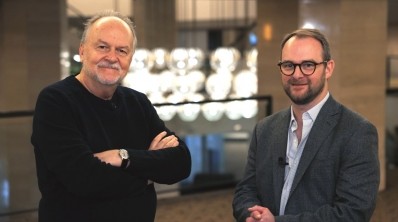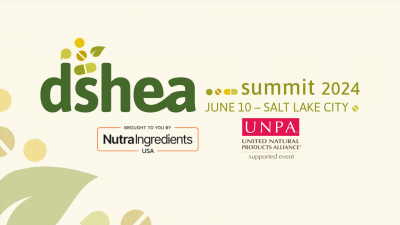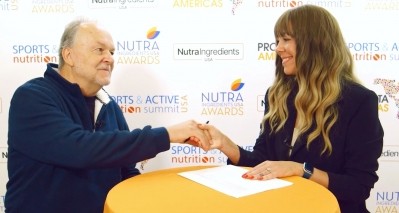UNPA's reflections on 2023: The year of opposite choices

1. The Ghost Ships of eCommerce
Have you noticed the growing number of dietary supplements on Amazon that appear out of the fog, of unknown provenance? There are hundreds, likely thousands, of these ghost brands. What we now know is many of these products are devoid of benefit, often with little or no active dietary ingredients. Over 25 published product analysis reports offer sobering evidence that these “ghost ships” are now afloat, despite Amazon’s “dietary supplement policies” which somehow challenge simple and well-accepted structure/function claims but, remarkably, fail to filter out utterly rubbish products. What labs are these ghost brands using that give a passing certificate of analysis to a product with zero active ingredients? Ghost labs? The damage being done is real. It is sapping the life out of real companies producing real products and making real investments in the community and industry. Do not look to FDA to fix this problem. I am highly skeptical Amazon can or will fix this problem. If it is to be fixed, we, the real industry, will have to do it. UNPA is ready to sit down with all others of a like mind to rid the seas of commerce of these ghost brands.
2. The Future of Sustainability
The year of 2023 was when the big question dropped on the table: “Can organic, regenerative agriculture (with soil, plants and people) grow fast enough to meet consumer demand in a world of depleting natural resources? Enter the bioactive pioneers who offer clean, fast, and abundant capacity to produce plant bioactives from cells, not plants, and from stainless steel reactors, not soil. Remember, this is the year of opposite choices. But is this a “right v. wrong” debate, or is it a “we need both” debate with a need to figure out how to support both approaches, on the view we have no other choice? My heart says the soil and plants (I was a farm boy), but my head says, “keep all options on the table.”
3. Artificial Intelligence: The Herald of the All-Knowing or the Destroyer of Worlds?
Talk about opposites. AI scares me. I don’t trust the benevolence of the brilliant people who are creating what sci-fi writers have foreseen for decades, yet AI is here, and we will embrace it, or we will likely be seen in the same light as not buying the Flowers.com URL for $100 in 1990. The R&D discovery capabilities of AI are extraordinary. Would we be remiss not to explore and use AI to develop the next generation of products that may solve problems heretofore beyond our skills? But in doing so, are we turning our backs on millennia of human experience and wisdom that is the foundation of natural health and healing? And perhaps the biggest question of all is, “what will our consumers think about all of this?” My guess? The old will be suspicious, the young will be enthusiastic, and we will be debating this very question for years to come.
4. FDA Doubting Itself
The agency has had a rough couple of years. Public confidence and trust in FDA have fallen to an all-time low. Why? An infant formula fiasco, the management (or mismanagement) of COVID and approval process for a new generation of vaccines, and the State of California openly disagreeing with FDA over the safety of FDA-approved food additives are all likely reasons. It got to the point where Commissioner Califf publicly lamented the open lack of respect for FDA by states, judges, juries, the media, influencers, and more. The agency turned to the Reagan-Udall Foundation to address these and other pressing concerns. The foundation produced a report, which is actually fascinating reading, that proposed a reorganization of CFSAN into the Human Foods Program (which is happening) as well as a new Deputy Commissioner for Human Foods, Mr. Jim Jones, coming from 30 years of experience at EPA. To our dismay, the Office of Dietary Supplement Programs has been reorganized into a “super office” with our office mates being food additives and novel ingredients. This has made many of us very uncomfortable, because it suggests that FDA is once again viewing dietary ingredients as akin to food additives (even though DSHEA says they absolutely are not). We seek answers to this and other questions as FDA continues to reorganize and attempt to restore public trust.
5. Consumer Trust in the Dietary Supplement Industry
I spent a lot of time this past year thinking about this question of trust. Trust is the most valuable and most elusive of attributes. Clearly, governments, politicians, and numerous other institutional bodies face a crisis of trust and confidence among the public. Fortunately, consumer trust in the natural product industry remains at favorable levels, but I think a difficult time is coming. The subjects I mentioned above each present great risks to our trustworthiness, reputations, and integrity if we make poor or uninformed choices, with these scenarios presenting utterly opposite directions. I do not recall a time like this. Our consumers remain a belief-based community. It’s how they feel about us. And those feelings may be vulnerable to change, should we miss the mark and embrace technology and ideas which contradict their own beliefs. The other great risk to public trust is failure to rid ourselves of people, products, and practices that are antithetical to our mission to deliver health, hope, and results to a public desperately in need of someone to trust, believe in, and be a part of.
In summary, let us choose well. The stakes are high, the opportunities are great, and the margin for error is small.










